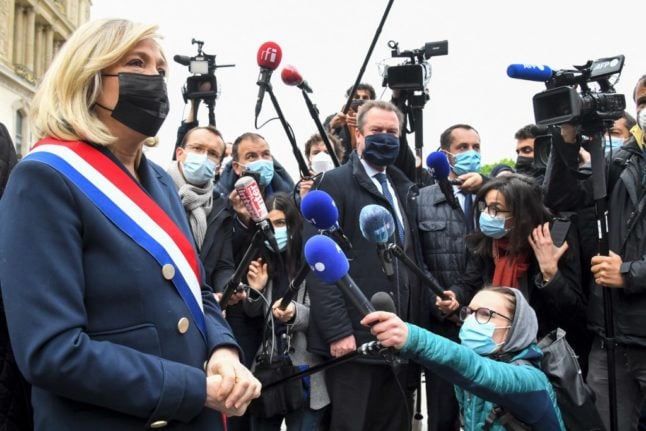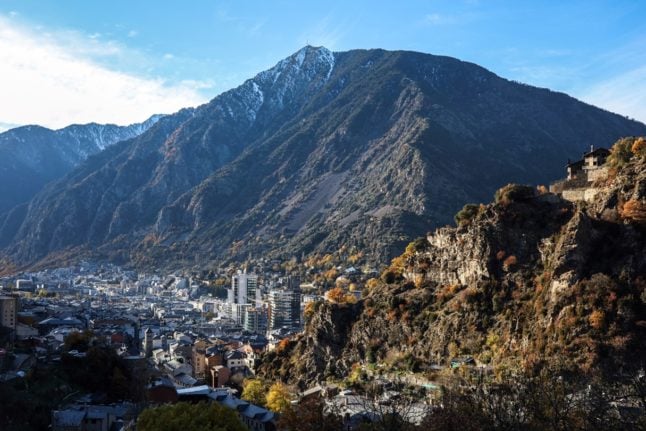Le Pen shared the gruesome images in December 2015, a few weeks after Islamic State jihadists killed 130 people in attacks in Paris, in response to a journalist who she accused of drawing a comparison between IS and her party.
One of the pictures showed the body of James Foley, an American journalist beheaded by the Islamist militants.
Another showed a man in an orange jumpsuit being run over by a tank, and the third a Jordanian pilot being burned alive in a cage.
“Daesh is this!” Le Pen wrote in a caption, using an Arabic acronym for IS.
In 2018 a judge charged her, as well as her Rassemblement National (National Rally) party colleague Gilbert Collard who also tweeted the pictures, with circulating “violent messages that incite terrorism or pornography or seriously harm human dignity” and that can be viewed by a minor.
The crime is punishable by up to three years in prison and a fine of €75,000, but the prosecution sought only a €5,000 fine.
The court acquitted both Le Pen and Collard on Tuesday, citing the right to freedom of expression.
The court recognised Le Pen’s intention to inform by sharing the images and said doing so can contribute to public debate, as long as violence is not normalised.
“It’s a great victory for law because freedom of expression was at stake in this case,” Le Pen’s lawyer Rodolphe Bosselut told reporters.
“Freedom of expression has been recognised as complete for a top politician,” he added.
The verdict comes as opinion polls show Le Pen will likely face off again against President Emmanuel Macron in next year’s presidential contest, in a repeat of the run-off seen in the last presidential elections in 2017.



 Please whitelist us to continue reading.
Please whitelist us to continue reading.
How she slithered away from this is beyond belief. It makes one wonder what the politics of the “court” were.
I don’t like Marine le Pen, but I support freedom of speech.
The pictures she posted on twitter were gruesome, I agree, however I feel it’s a good thing for people to see the atrocities caused by IS.
You could turn away and not look if you prefer, that’s your choice.